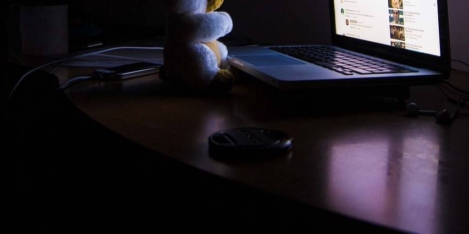November 1, 2018
Digitisation means traditional working day no longer a reality for CEOs
 The rise of data and digitisation has led to the demise of the traditional working day for many CEOs, with a third now checking business analytics first thing in the morning and last thing before they go to bed. This peaks at 54 percent among 25-34 year olds but drops to just 5 percent for leaders over 45, who are much more fixed to their desk. According to the research by Domo (registration required), 80 percent of these leaders prefer to wait until they are in the office to check in. Three quarters (71 percent) of CEOs across the UK and Ireland believe their business could be at risk from current blind spots in data access and skills, however, there is another demographic split. 84 percent of CEOs age 25-34 said it could be a risk, compared to just half of over 55s.
The rise of data and digitisation has led to the demise of the traditional working day for many CEOs, with a third now checking business analytics first thing in the morning and last thing before they go to bed. This peaks at 54 percent among 25-34 year olds but drops to just 5 percent for leaders over 45, who are much more fixed to their desk. According to the research by Domo (registration required), 80 percent of these leaders prefer to wait until they are in the office to check in. Three quarters (71 percent) of CEOs across the UK and Ireland believe their business could be at risk from current blind spots in data access and skills, however, there is another demographic split. 84 percent of CEOs age 25-34 said it could be a risk, compared to just half of over 55s.











 Almost half (49 percent) of UK workers are in jobs they are either under- or over-skilled for, according to new research from the CIPD. Its report ‘Over-skilled and underused: Investigating the untapped potential of UK skills’ surveyed 3,700 UK employees and found that more than a third (37 percent) of workers have the skills to cope with more demanding duties than they currently have. At the opposite end of the scale, one in ten (12 percent) employees said they lacked all the skills needed to carry out their job effectively. This means that as many as half (49 percent) of UK workers could be in the wrong job, based on their skill level. The UK has one of most skilled workforces in the world, with 42 percent of workers qualified to degree level, yet it also has the highest proportion of jobs within the OECD which require no qualifications at all.
Almost half (49 percent) of UK workers are in jobs they are either under- or over-skilled for, according to new research from the CIPD. Its report ‘Over-skilled and underused: Investigating the untapped potential of UK skills’ surveyed 3,700 UK employees and found that more than a third (37 percent) of workers have the skills to cope with more demanding duties than they currently have. At the opposite end of the scale, one in ten (12 percent) employees said they lacked all the skills needed to carry out their job effectively. This means that as many as half (49 percent) of UK workers could be in the wrong job, based on their skill level. The UK has one of most skilled workforces in the world, with 42 percent of workers qualified to degree level, yet it also has the highest proportion of jobs within the OECD which require no qualifications at all.





















September 12, 2018
Reinventing jobs for an automated future workplace
by Ravin Jesuthasan • AI, Comment, Technology
(more…)